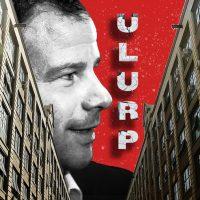The fight over proposed rezoning of Soho and Noho is already taking shape.
Mayor Bill de Blasio announced Wednesday that rezoning, which would pave the way for an influx of housing in the well-to-do neighborhood, will enter the city’s land use review process sometime next year.
Though details on the city’s proposal are sparse, what’s known is that it could create 3,200 new apartments, 800 of which would be permanently affordable through the Mandatory Inclusionary Housing program. It would also address the need for “clearer rules to help retail stores survive,” the mayor said during a Wednesday press conference.
Much of Soho is zoned for manufacturing use with a limited amount of retail space permitted. A good portion of its well-known shopping district is technically violating zoning rules.
Read more


De Blasio’s support follows years of criticism from housing advocates that his administration has only targeted low-income neighborhoods for upzoning. On Wednesday, the mayor noted that “there’s a lot of support on the ground for the idea that there needs to be affordable housing in every community, including those that are upper-income.”
But it’s already facing fierce community opposition. The Greenwich Village Society for Historic Preservation argues that the rezoning is a giveaway to developers that will result in large-scale luxury towers rising in the low-slung, historic neighborhood. Andrew Berman, executive director of GVSHP, said the de Blasio administration is “conflating upzoning with affordability.”
“I don’t think Soho and Noho need more big-box retail or luxury housing,” he said. “And they definitely don’t need high-rises and skyscrapers.”
Jessica Katz, executive director of the Citizens Housing & Planning Council, which supports the rezoning, said that much of Soho is designated as an historic district, which will ensure that the character of the neighborhood is preserved. She said that with uncertainty surrounding the office market, as well as retail, the zoning rules in Soho and Noho should be made “as flexible as possible.”
Leveraging private investment to build affordable housing is especially crucial now, given the lack of public subsidies available and the gaping budget hole caused by the pandemic. It is not yet clear which developers stand to benefit most from a zoning overhaul in Soho and Noho, though a few sites are primed for development.
A map of the district published on the Department of City Planning’s website shows that a parking lot on Centre Street owned by Edison Properties is within one of the three “housing opportunity areas” identified by the agency. A representative for Edison declined to comment.
Last year, CB Development took over the ground lease of 358 Bowery, one of the few development sites in the district. Representatives for CB didn’t respond to messages seeking comment.
Valerie Campbell, a partner at Kramer Levin who represents residential and commercial developers, said the rezoning is long overdue, but expects the proposal won’t simply sail through the Uniform Land Use Review Procedure.
“The public review process is going to be quite intense, and certainly a test of the administration to realize its affordable housing goals,” she said.
It seems to have the backing of local City Council member Margaret Chin, whose support will be essential. In a statement, Chin said she is looking forward to charting “a path forward that brings more opportunities for desperately needed affordable housing while preserving and enhancing the artistic, cultural, and historical components that make these neighborhoods so special.”
A small portion of City Council member Carlina Rivera’s district is also part of the proposed rezoning, based on City Planning’s map.
“We have not seen this new proposal from the Department of City Planning and we were not alerted to the announcement from the Mayor until yesterday afternoon, nor has DCP involved us in any discussions on this proposal since the SoHo/NoHo Community Advisory Group last met prior to the pandemic,” Jeremy Unger, a spokesperson for Rivera said in a statement, adding that the council member will “review the application carefully” once additional details are released.
Perhaps crucially for the mayor, Soho and Noho would also boost de Blasio’s somewhat deflated affordable housing legacy. He set out to rezone 15 neighborhoods through the city’s MIH program, but has completed only six. Lawsuits and community opposition have delayed some of those plans and killed others entirely.
With a little over a year left in office, the mayor has committed to launching a rezoning of Gowanus in January and moving forward with the redevelopment of Governors Island (which will not have housing). De Blasio has every reason to want to complete these rezonings before the end of his term, given that the city will have not only a new mayor but a largely different City Council come 2022. Chin is term-limited, meaning the Soho rezoning could become a major campaign issue for those vying for her seat.
“The timeline is very tight,” said Katz. “It is definitely going to take some leadership to make it happen.”
